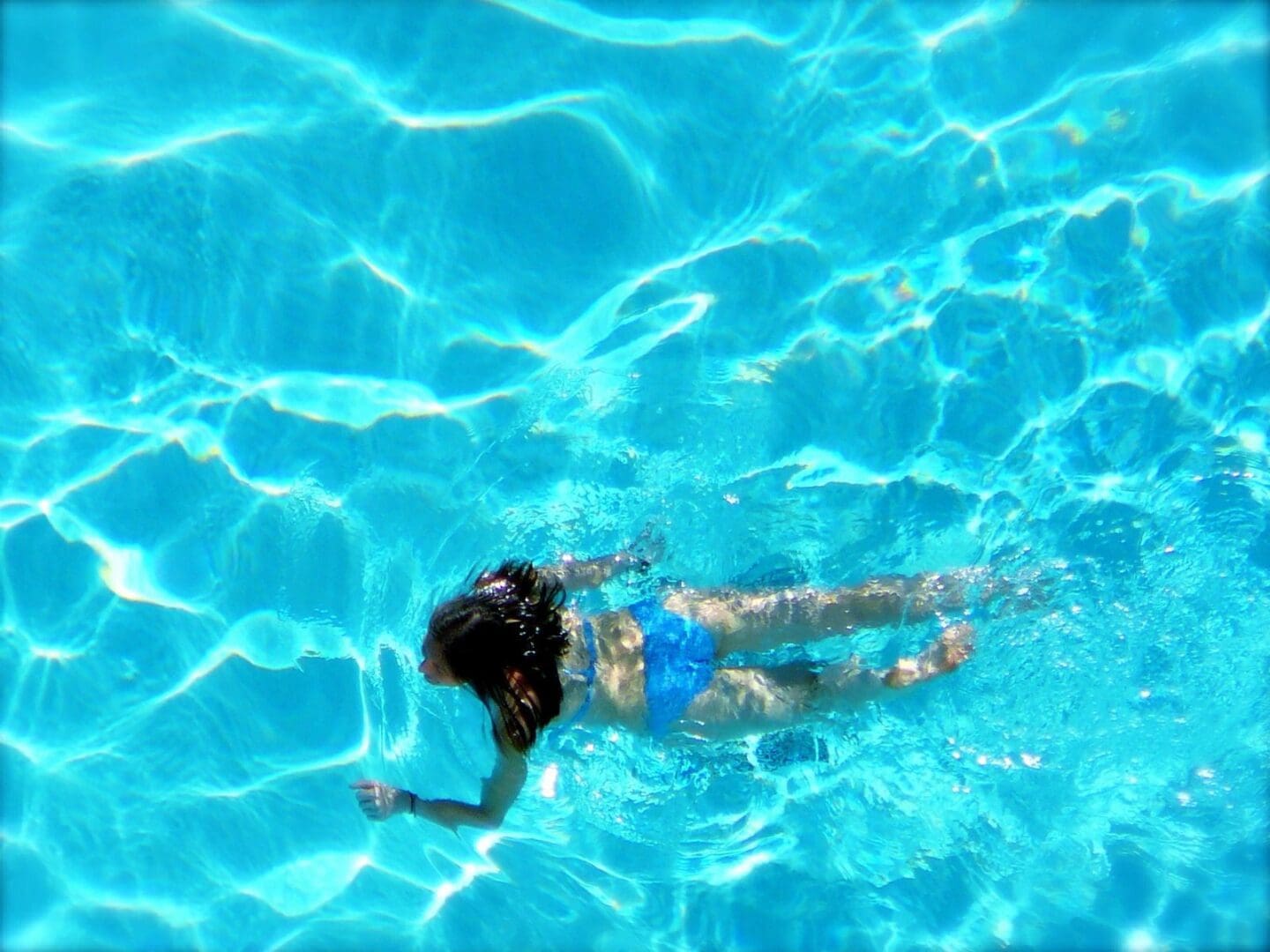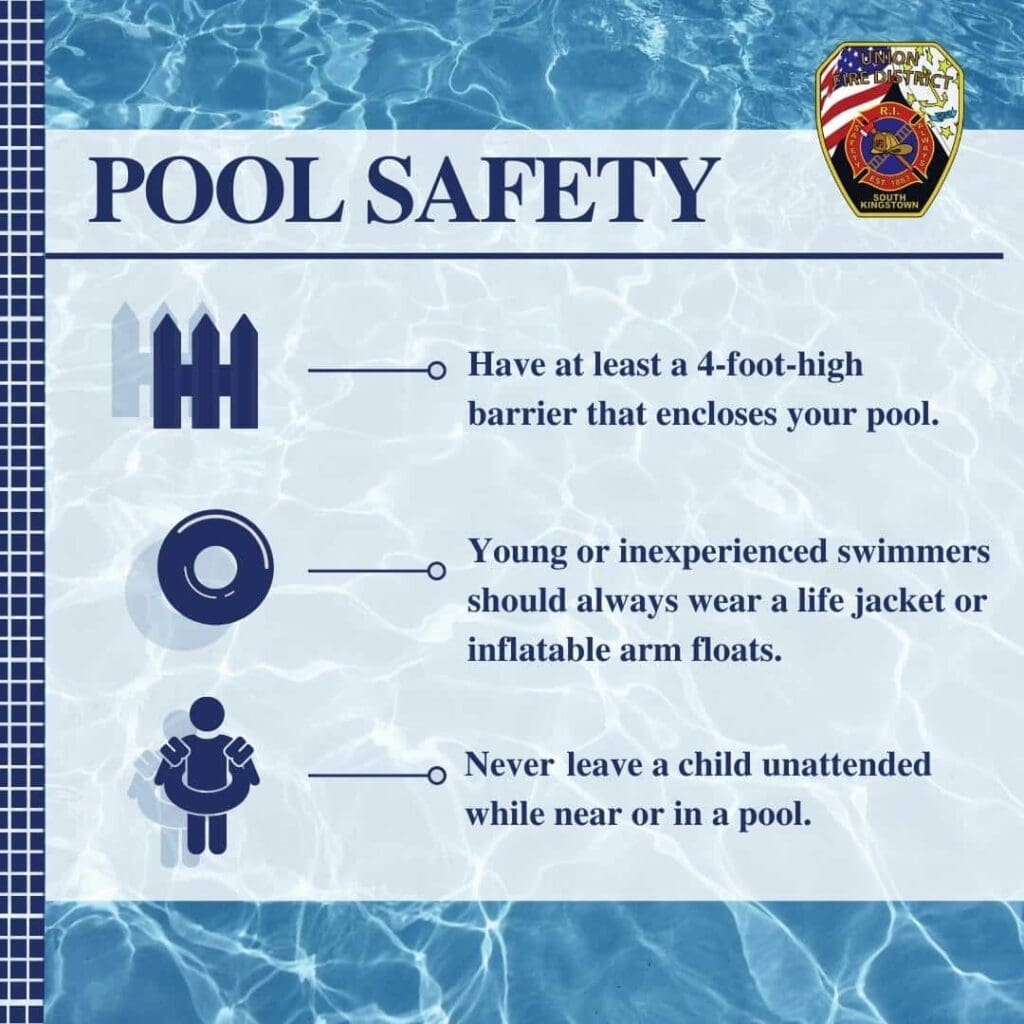Search Posts
Recent Posts
- Outdoors in RI: Help keep recreation areas clean. Invasive Milfoil, trash. 2A update – Jeff Gross July 26, 2024
- Real Estate in RI: Highest-ever sale in Queen’s Grant, EG $1.25M, by Residential Properties July 26, 2024
- Homeless in RI: Gov. Newsom issues Executive Order. Remove California’s encampments. July 26, 2024
- Let the games begin. XXXIII Summer Olympics – John Cardullo July 26, 2024
- GriefSPEAK: What would you do? – Mari Dias Nardolillo July 26, 2024
Categories
Subscribe!
Thanks for subscribing! Please check your email for further instructions.

Pool Safety – from the Union Fire District
Being in the middle of a heatwave and in the middle of summer, is a critical time for safety around the ocean and backyard pools. Our guard may be down as summer winds down, but this is a key time to review ways to keep safe, especially where children are.Chief Steven Pinch and the Union Fire District of South Kingstown like to remind residents to take proper precautions and adhere to all regulations regarding swimming pools.
The American Red Cross reports that more than 200 children drown in swimming pools each year. Additionally, drowning is the number one cause of accidental death for children ages 1 to 4, according to the Centers for Disease Control and Prevention.
The Union Fire District reminds residents to follow these safety regulations and recommended precautions:
- Fasten a safety cover over the pool when it is not in use, and remove ladders to further prevent access into the pool.
- Watch the local weather reports and do not swim if thunderstorms are in the forecast.
- Never use the pool if the chemical levels are not correct, or if the water is cloudy and you can’t see the bottom.
- Set safety instructions and share them with family, friends, neighbors and anyone else who is near or uses the pool.
- Never leave children unattended while they are in or near a pool, and make sure they have an adult to accompany them into the water.
- Never jump or dive head first into an above ground pool or in the shallow end. Only jump or dive into the deep end of a pool where the minimum depth is eight feet.
- Be aware of who is an inexperienced swimmer before pool gatherings and keep an eye on them when they are around the water to ensure they don’t accidently fall into the water.
- Young or inexperienced swimmers should always wear a life jacket or inflatable arm flotation devices.
- Avoid roughhousing or play near the pool. This can lead to injuries including hitting your head or drowning.
- Those who are 21 and older should drink responsibly if they choose to consume alcoholic beverages when by the pool. Overindulging increases the risk for injuries or accidental drowning.
- Avoid using glass containers by the pool. They could break and leave glass around the pool or in the water.
- Watch kids when they are in or around water. Keep young children and weak swimmers within arm’s reach of an adult. Make sure more experienced swimmers are with a partner every time.
- Teach children that swimming in open water is different from swimming in a pool. Open water can have limited visibility, unknown depth, currents and undertow, which can make swimming more difficult for children.
- Make sure children stay away from pool drains, pipes or any other openings to avoid getting trapped or hurt.
- Take a CPR course for adults and children to be prepared if an emergency situation occurs, and update skills regularly.
- Residents are encouraged to teach children to swim or enroll them in swimming lessons.
- Talk to your children about the importance of pool safety and advise them to stay away from pool deep ends, and to always walk, never run near the pool.
For more swimming safety tips courtesy SafeKids.org, click here.

